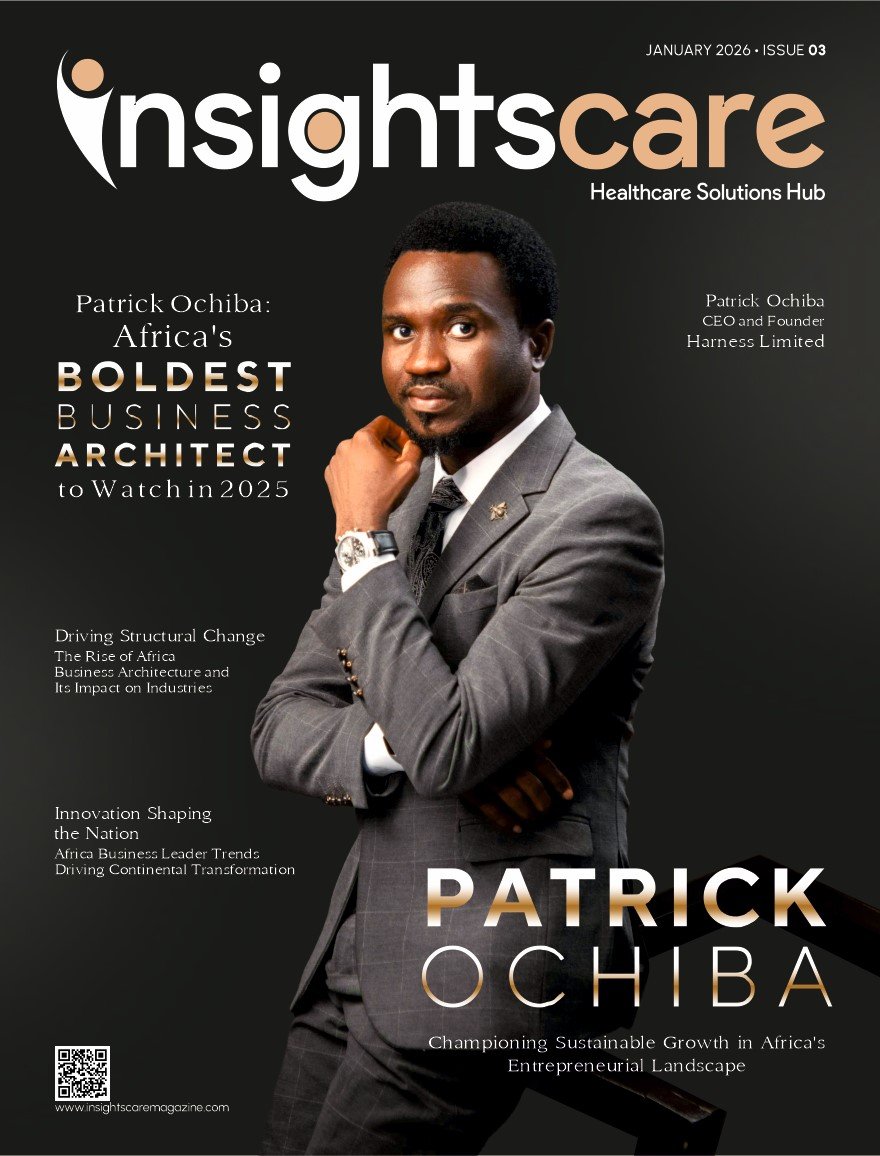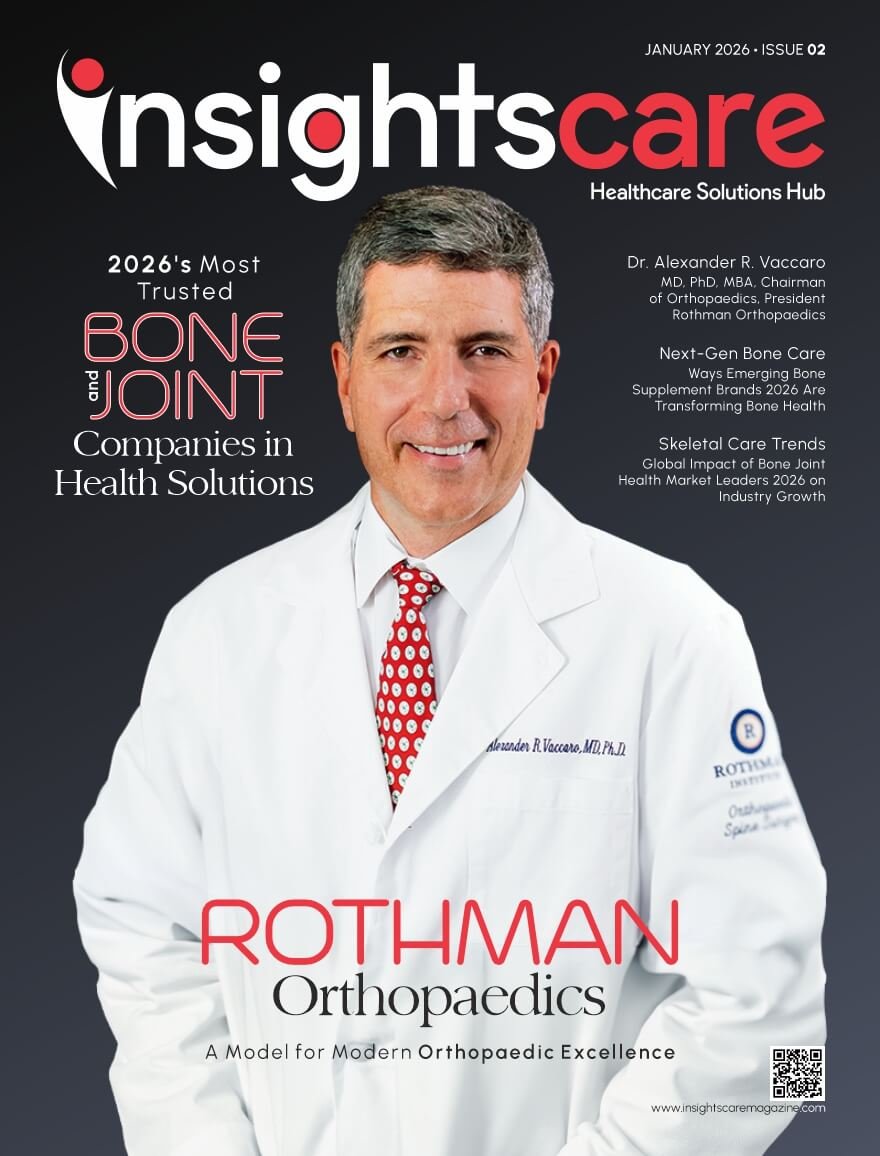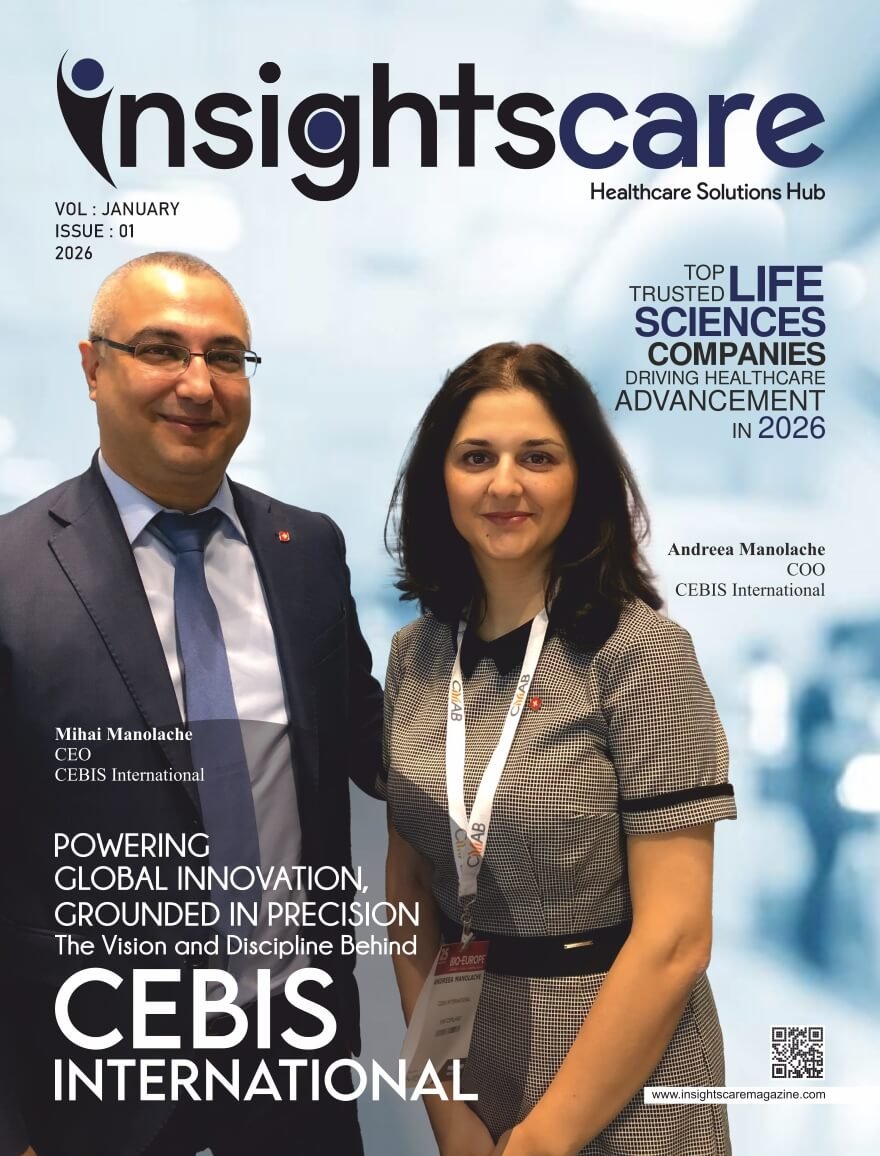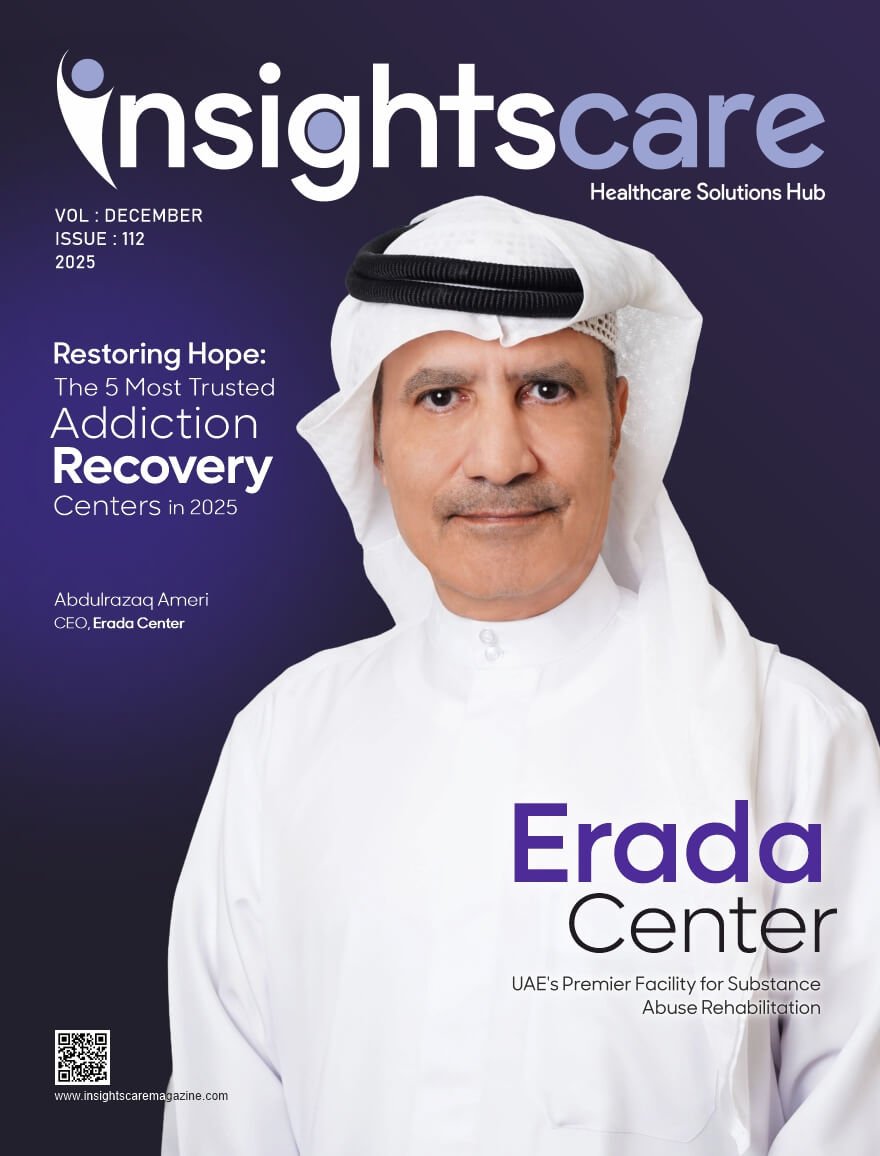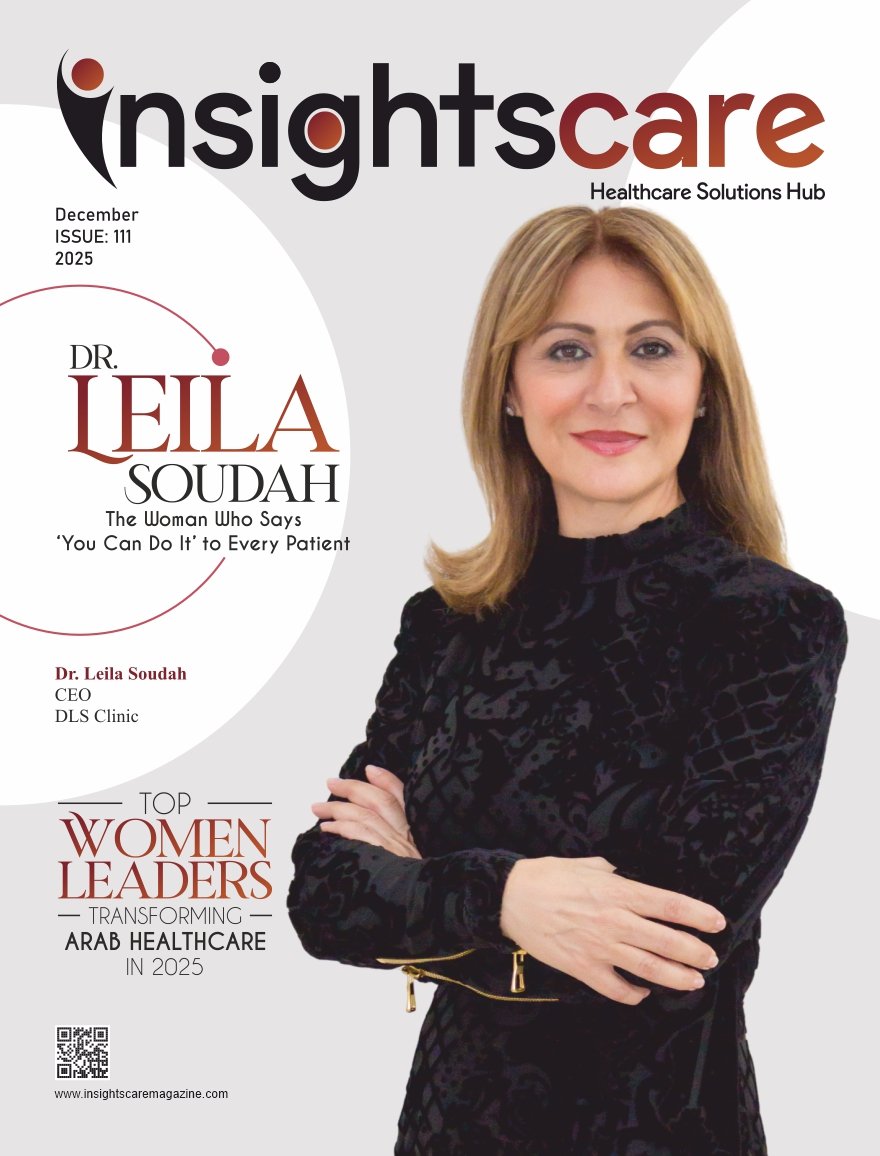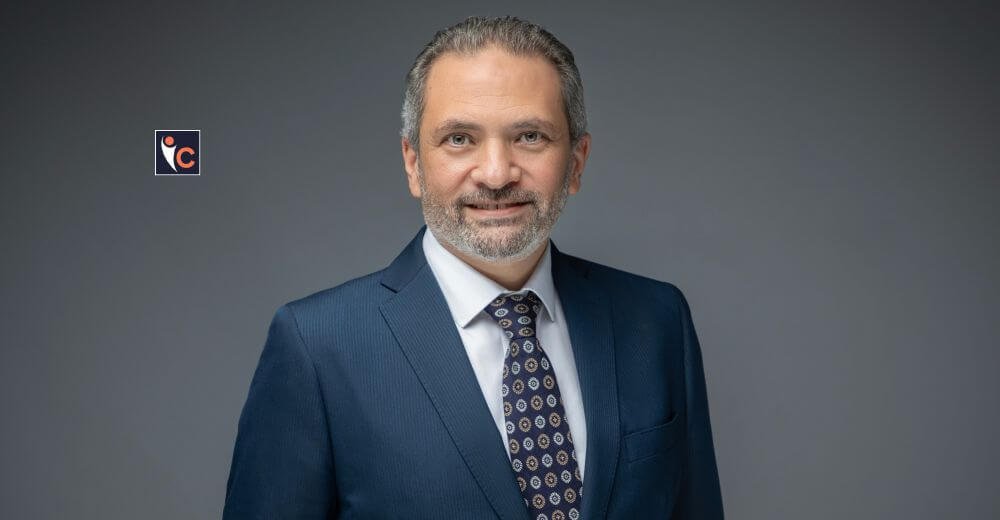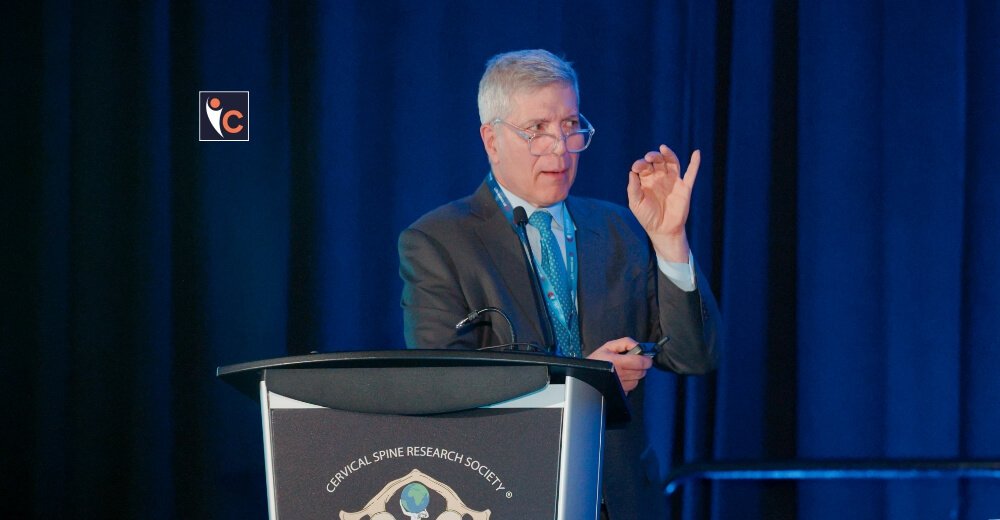What’s next? It’s a question that never stops racing through a true leader’s head – particularly in a sector as dynamic and significant as that of healthcare. To the leaders managing organizations in this area, anticipating is not an option; it’s the heart of it. The next discovery, the next joint venture, the next manner of making a tangible positive difference to more people – that is the area of interest. And for Mohamed Galal, Vice President, Head of Middle East, Bayer Consumer Health, that forward-thinking mindset has shaped a career spanning more than three decades.
Having a foundation in pharmaceuticals and a strong commitment to people, Mohamed’s journey is built on growth, purpose, and results. From his Cairo University days to being a regional manager at one of the largest and most reputable healthcare companies in the world, he has been making changes that reflect positive impacts and a vision that transcends corporate realms.
At Bayer, he’s helping drive healthcare transformation across the Middle East – not just through products, but through strategy, access, and a deep understanding of community needs. Guided by the mission “Health for All, Hunger for None,” Mohamed Galal’s work is focused on bringing better health outcomes to millions, while building a system that’s more responsive, more inclusive, and ready for what’s next.
Let’s read on to explore Mohamed’s journey, vision, and the bold steps transforming healthcare across the Middle East!
Mohamed Galal’s Professional Journey
Mohamed Galal’s journey in healthcare began with a foundation rooted in academic excellence, having studied at Cairo University, which set the stage for his successful career in the pharmaceutical industry. Over the last 30 years, he has built a reputation for his deep understanding of the healthcare sector, emphasizing the need for business development, market strategy, and operational precision. He explains, “I have embraced this industry with profound responsibility. The 30-year dedicated journey across various roles has shaped my understanding and passion for this vital sector.”
Over the years, he has ascended through various roles in different organizations, gaining a diverse perspective on the healthcare industry’s intricacies. His career at Bayer began with an intense focus on transforming the company’s approach in the Middle East, where he now oversees the consumer health division. In this capacity, he leads efforts to innovate and expand the company’s reach, making a lasting impact on the region. Reflecting on the growth his team has achieved at Bayer, Mohamed Galal says: “Every day, I am humbled by the opportunity to lead strategic initiatives that drive growth and innovation.”
His work is not simply about business success; it is about contributing to a positive change in people’s lives. “I firmly believe that by adopting a strategic, customer-centric approach, we can develop high-quality solutions that not only meet the evolving needs of our communities but also enhance their overall well-being,” he adds. Mohamed Galal views his leadership role as one that goes beyond achieving business targets. He is determined to be a force of positive change, making healthcare more accessible and impactful in the region.
Bayer’s Mission in the Region
As Vice President and Head of the Middle East, Mohamed Galal has a clear vision for Bayer’s role in transforming healthcare in the region. This vision aligns closely with the company’s global mission of “Health for All, Hunger for None,” which is embedded in his leadership philosophy, guiding the company’s every step in the region. He defines this mission as one that strives to create a healthcare ecosystem that prioritizes accessibility and equity, ensuring that all individuals benefit from the advances in healthcare, regardless of where they live.
For Mohamed Galal, accessibility is not just about providing products, it’s about strengthening the entire healthcare system. He emphasizes the importance of working with policymakers and regulatory bodies to foster a supportive healthcare landscape that drives innovation and meets community needs. “We recognize the importance of a conducive policy and regulatory framework to promote innovation and growth,” he says.
Moreover, Bayer’s efforts in the region contribute to economic growth by improving public health, which in turn boosts productivity. “A healthier population contributes to increased productivity in the workforce, which ultimately drives economic development in the region,” he says, highlighting the connection between healthcare and overall regional prosperity. The company’s efforts go beyond improving health outcomes -they are an investment in the region’s long-term vitality.
Innovative Solutions for Regional Health Challenges
Bayer has long been at the forefront of pharmaceutical innovation, and in the Middle East, this commitment has translated into impactful initiatives addressing some of the region’s most pressing health challenges. Among these are issues such as cardiovascular diseases, diabetes, oncology, and ophthalmology. For Mohamed, these challenges are personal, and he is particularly proud of the role Bayer has played in addressing them. One initiative that stands out for him is its support for the “Protect Your Heart” campaign launched by the government, aimed at raising awareness about cardiovascular health.
“This campaign is pivotal in educating consumers about heart health and the importance of early detection,” he says. Cardiovascular diseases and diabetes are among the most significant health concerns in the region, and early detection can be a game-changer. Through such initiatives, it seeks to empower individuals to take control of their health by providing them with knowledge and tools to manage their well-being effectively. This is just one example of how the company, under Mohamed Galal’s leadership, has been transforming the healthcare landscape in the region.
Addressing Healthcare Challenges in the Middle East
The healthcare landscape in the Middle East, while evolving, still faces numerous challenges. One of the key obstacles in the region is the disparity in healthcare services when compared to developed markets. He notes, “While the healthcare industry in ME is making strides to ensure the availability of healthcare services, it still falls short of achieving per capita alignment in comparison to developed markets.” Despite the progress made, gaps in service availability and accessibility remain a significant concern.
One of the primary hurdles in addressing these issues is the lack of awareness. Many individuals in the region remain unaware of the importance of preventive care and early screenings, which often leads to late-stage diagnoses of chronic diseases. Bayer is addressing this challenge by increasing awareness and making health services more accessible. “We are actively implementing initiatives focused on increasing awareness and facilitating access to essential health services,” Mohamed Galal explains. Through collaborations with governments and healthcare institutions, Bayer is working to close these gaps and ensure that people receive the care they need when they need it.
Additionally, focusing on local production is a part of its strategy to enhance accessibility in the region. He emphasizes the importance of localization in making healthcare more efficient and responsive to the needs of local populations. “By investing in local manufacturing, we are ensuring that high-quality healthcare solutions are readily available to the populations we serve,” he says. This initiative not only makes products more accessible but also supports the region’s economic development.
Leveraging Technology for Better Healthcare
Today, technology is playing an increasingly significant role in shaping the future of healthcare. Digital health and artificial intelligence are at the forefront of this transformation, and Bayer is embracing these innovations to enhance both patient care and operational efficiency. The organization has invested in digital health platforms that provide patients with valuable tools to manage their health, including apps for symptom tracking and medication adherence.
Mohamed Galal highlights the importance of leveraging AI to improve healthcare outcomes. “We partner with technology companies and startups to help us integrate AI-driven diagnostics and other cutting-edge technologies into our offerings,” he says. An example of this is the collaboration between Bayer and Huma Therapeutics to develop the ‘Bayer Aspirin Heart Risk Assessment’ tool. This digital tool evaluates the risk of cardiovascular diseases without the need for invasive tests, making it an invaluable resource for patients in the region.
Bayer’s use of AI extends beyond patient care to improve its operations. By analyzing vast amounts of healthcare data, it can better identify healthcare professionals who would benefit most from its products. This data-driven approach ensures that the company can target the right individuals, ultimately improve patient care, and ensure that the solutions reach those who need them most.
Promoting Sustainability in Healthcare
Sustainability is another key priority, and the company is committed to promoting sustainable healthcare practices across the Middle East. This commitment extends beyond the environmental impact of its operations and includes social and economic dimensions as well. As Mohamed Galal explains, “Sustainability is a cornerstone of Bayer’s mission, and we are deeply committed to promoting sustainable healthcare practices across the region.”
Bayer has set ambitious sustainability targets, including a commitment to support 100 million smallholder farmers, empower 100 million people with self-care solutions, and provide modern contraception to 100 million women by 2030. In the Middle East, these goals have translated into targeted campaigns to improve cardiovascular health and provide screenings for thousands of individuals. “We have successfully screened 3,000 individuals across 25 clinics in Iraq,” Mohamed Galal shares, highlighting the company’s outreach efforts.
The company is also committed to reducing its ecological footprint, focusing on using degradable materials in packaging and promotional efforts. “By integrating these sustainable practices into our operations, we aim not only to support environmental health but also to contribute positively to the well-being of communities,” he says.
Building High-Performing Teams and Fostering Innovation
A leader’s impact is only as strong as the teams they build and the culture they cultivate within their organization. Mohamed Galal is committed to building high-performing teams and creating an environment that encourages innovation. At Bayer, this is achieved through a unique approach known as Dynamic Shared Ownership (DSO), which focuses on collaboration, customer- centricity, and faster work cycles.
“We empower our teams to work more effectively and creatively,” he explains. By aligning teams around customer needs, the company will be able to improve responsiveness and ensure that innovation is at the heart of everything they do. Mohamed Galal’s leadership strategy also includes creating shorter timelines for project development, known as 90-day cycles, which allow for rapid feedback and course correction. This agile approach not only enhances efficiency but also drives continuous improvement.
By cultivating a culture that encourages creativity and collaboration, Mohamed Galal has positioned Bayer as a leader in delivering innovative healthcare solutions. “Our goal is to harness the scale of a multinational while embracing the speed and agility of a start-up,” he says.
The Growth Strategy
Looking ahead, Bayer’s strategy for growth in the Middle East revolves around localization, strategic partnerships, and enhancing accessibility for consumers. Mohamed Galal is focused on ensuring that its solutions are tailored to the specific needs of the region. This means not only producing more products locally but also hiring local talent to drive innovation and provide insights into the unique challenges and opportunities of the market.
“We are committed to hiring and retaining local talent to foster a workforce that understands the cultural and economic nuances of these markets,” he shares. By investing in local talent, the organization is not only strengthening its operations but also empowering the workforce to take ownership of the company’s success.
Innovation will continue to be a cornerstone of Bayer’s strategy. “Whether it’s through new therapies, digital health solutions, or community health initiatives, we aim to provide high- quality, effective options that improve the lives of individuals in the Middle East,” he shares, emphasizing the ongoing commitment to improving health outcomes in the region.
Advice for Aspiring Healthcare Leaders
As a leader with decades of experience, Mohamed Galal has valuable insights to share with those aspiring to make a difference in the healthcare sector. “My foremost piece of advice is to believe in the growth story of the industry and the region,” he says.
He encourages future leaders to immerse themselves in the nuances of the healthcare industry, understand the unique needs of different markets, and build strong relationships with stakeholders. “This deep understanding will enhance your ability to lead effectively and create solutions that resonate with the people,” he advises.
He also emphasizes the importance of integrity, collaboration, and continuous learning as foundational traits for effective leadership. “Encourage a mindset of agility and adaptability,” he suggests. By embracing these qualities, aspiring leaders can make a lasting impact on the healthcare sector and improve the lives of millions of individuals.

